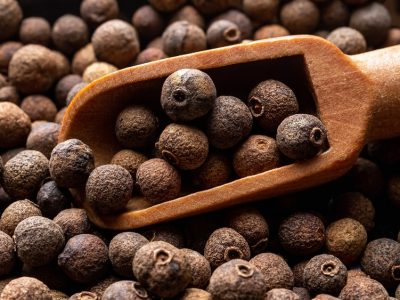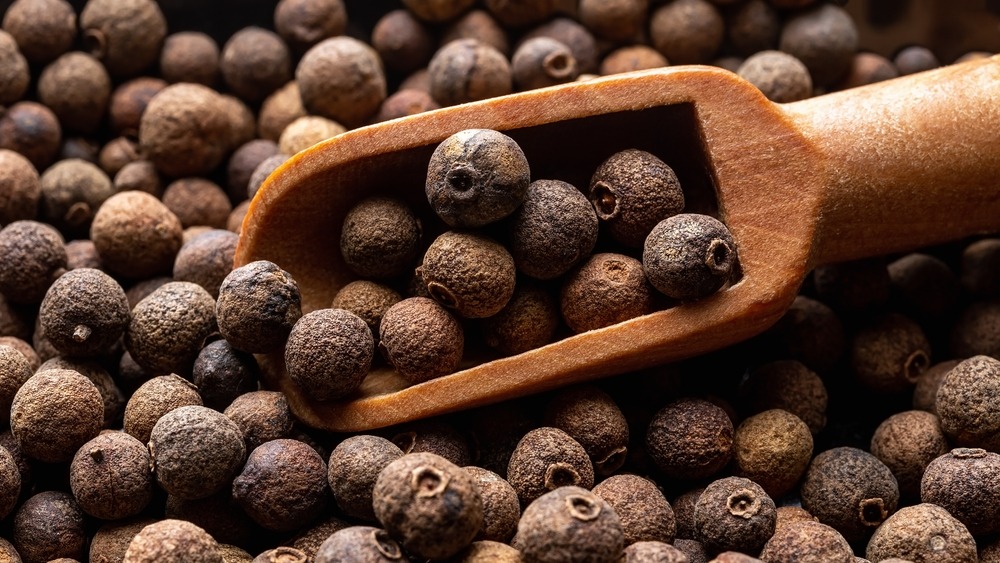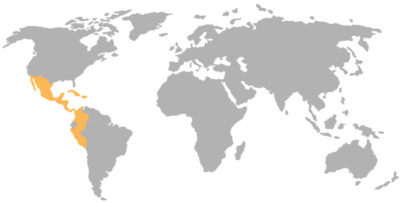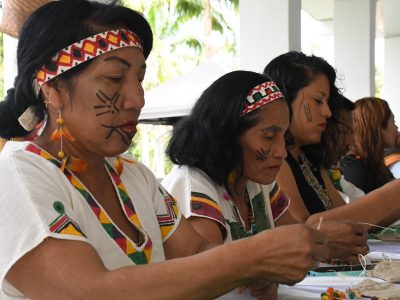Jamaica, known for its vibrant culture and landscapes, offers a product reflective of its Caribbean flavor: spices. With their distinctive characteristics, Jamaican spices—particularly pimento (allspice), a key ingredient in jerk seasoning—have long been premium products in the U.S. and globally.
Demand for spices continues to grow thanks to their use in not only foods and seasonings but also cosmetics, pharmaceuticals, and nutraceuticals. However, recent trends indicate that U.S. buyers are sourcing spices from other countries due to rising prices and production challenges in Jamaica. (Exports to the U.S. dropped from $5.3 million in 2023 to $3.2 million in 2024.)
A few factors contribute to snags in the country’s spice sector. For one, many farmers lack access to important resources, like planting materials and financing. Many farmers also struggle to cope with extreme weather, like droughts and hurricanes. As crops suffer and production slows, the unmet demand for Jamaican spices grows both domestically and globally. Unmet demand, in turn, drives up prices, even as production struggles to keep pace.
The good news is, today there are signs of collaboration and investment in the sector. The U.S. Department of Agriculture (USDA) Food for Progress Jamaica Spices helped Jamaican farmers meet the demand for turmeric, ginger, and pimento and expand trade of spices to the U.S. market. Implemented by ACDI/VOCA, the project used a market system and ecosystem-based landscape approach to support 4,754 farmers and individuals, including service providers and financers. Farmers gained access to much needed resources to boost their production and sales.
The project aimed to help Jamaica regain its market share as a leading supplier of high-quality spices. Ensuring a steady supply aimed to stabilize prices and foster trade relations between the U.S. and Jamaica. Consumers in the U.S. and globally would then have access to premium spice products. And a revitalized spice sector would reduce Jamaica’s need for support from foreign entities in the future. Initially designed as a five-year initiative (2022–2027), the project concluded in 2025 following a strategic realignment of USAID funding priorities.
Project Objectives
- Increase the quality of Jamaican ginger, turmeric, and pimento to meet international standards and increase trade opportunities.
- Connect smallholder farmers and producer groups with domestic and international buyers.
- Strengthen the capacity of farmers, producer organizations, processors, and other private-sector entities to increase the productivity of ginger, turmeric, and pimento.
- Boost farmers’ incomes to improve their livelihoods and levels of food security.
Sample Activities
- Expand seed nurseries and the supply of clean planting materials.
- Conduct research and development for plant disease-resistant technologies.
- Promote the use of improved agricultural production techniques among farmers.
- Facilitate agricultural lending, financial services, and investment within the sector.
- Improve the infrastructure for processing crop yields during post-harvest.
Anticipated and Final Results
Anticipated Results
Final Results*
Improving Spice Productivity and Trade
- Improve planting and management practices on 1,156 hectares of land for spice cultivation.
- Collaborated with eight private- and government-led nursery operators to secure clean planting materials and initiate 147 acres of spice cultivation.
- Supported the formalization of supply agreements between spice producers and processors to establish more structured relationships. To further strengthen these relationships, the project created a financing model to bring together anchor firms, farming input suppliers, and financial service providers. This innovative model minimizes credit risk and unlocks working capital for small producers, while enabling more strategic purchasing of farming inputs.
Boosting Incomes
- Increase yields of turmeric, ginger, and pimento by 50 percent, resulting in nearly $17 million in sales and $11.6 million in annual export sales.
- Surpassed the second-year sales target, achieving $3.9 million in sales.
- Conducted six studies to enhance the design and effectiveness of the project, targeting key actors in the spice value chain, end markets, and strategic partners.
- Organized 14 farmer-based organizations made up of roughly 15 farmers each.
- Helped farmers reduce damage from Hurricane Beryl by 40 percent compared to others in the spice sector.
Providing Training
- Train 2,987 farmers, producers, and others in better management and organizational practices.
- Assessed nine farmer-based organizations. Nearly all have shown improvements, including formalizing their operations, updating their bylaws, establishing boards of directors, and securing formal business registrations, which allows them to open bank accounts.
Providing Training
- Partner with 30 firms and strengthen the capacity of the government agencies, including the Jamaica Agricultural Commodities Regulatory Authority (JACRA), Rural Agricultural Development Authority (RADA), and Ministry of Agriculture, Fisheries and Mining.
- Helped nurseries improve their infrastructure and protocols for screening risks as well as promoted new technologies among farmers. Doing so laid the groundwork for quality-assured planting material, allowing nurseries and farmers to emerge as credible sources of it. This work is essential to tackling the root cause of low productivity.
*As of March 2025
Anticipated Impact
- A Growing Economy and Trade Partner: The global spice sector is a multi-billion-dollar industry that continues to expand. Ensuring a stable supply of premium Jamaican spices will help stabilize prices and meet the demand in various industries, including food, cosmetics, and pharmaceuticals.
- Safe, Premium Products: The project fosters collaboration between the U.S. and Jamaica, strengthening diplomatic and trade relations between the nations. It also ensures U.S. and global consumers have access to safe, premium products.
- A Self-Reliant Country: A diversified and reliable supply chain for spices reduces Jamaica’s dependency on a few sources, enhancing incomes for local farmers and, in turn, their levels of food security. The project’s investment in the spice sector will also help revitalize it in ways that are long-term and sustainable, reducing the need for future foreign aid.
Related News

ACDI/VOCA Awarded the Food for Progress Jamaica Spices Project by USDA
ACDI/VOCA is pleased to announce the US Department of Agriculture (USDA) has awarded the organization with the Food for Progress …










